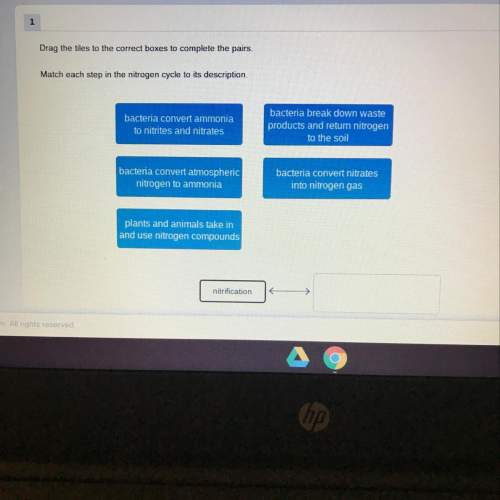
Biology, 16.12.2020 07:40 sarahandlara200
According to CDC, between 1998 and 2011, about 79% of the dairy-related illness outbreaks were caused by
cheese or raw milk (unpasteurized) products. 148 outbreaks and 2,384 illnesses were reported during that time.
284 required hospitalizations and 2 deaths were caused by cheese or raw milk products. Although these numbers
seem small, there are risks. At a federal level, although the FDA forbids the sale or distribution of raw
(unpasteurized) milk, 13 states allow the sale of raw milk in their retail stores, and another 17 states allow the
sale of raw milk on the actual farm that the milk was produced.
Explain the thinking that caused the FDA to forbid the sale and distribution of raw milk.
A)
Unpasteurized milk has the shortest shelf-life.
B)
Parasitic organisms that live in cows can be passed on to humans.
Unpasteurized milk has a short shelf-life and costs more money to produce.
D)
Microorganisms found in unpasteurized milk can cause illness and even
death.

Answers: 3


Another question on Biology

Biology, 22.06.2019 01:30
15 ! come and answer! a(n) disease is caused by a pathogen and can spread among organisms. a infectious b noninfectious c toxic d contaminated
Answers: 1

Biology, 22.06.2019 04:20
When in solution, a molecule that moves slowly across an artificial membrane moves rapidly across a plasma membrane. this molecule rapidly enters the cell regardless of whether its concentration is higher inside or outside the cell. using this information, which transport mechanism is most likely to be responsible for the movement of the molecule across a plasma membrane? view available hint(s)when in solution, a molecule that moves slowly across an artificial membrane moves rapidly across a plasma membrane. this molecule rapidly enters the cell regardless of whether its concentration is higher inside or outside the cell. using this information, which transport mechanism is most likely to be responsible for the movement of the molecule across a plasma membrane? active transportexocytosis
Answers: 2

Biology, 22.06.2019 07:20
Agroup of plant cells was exposed to radiation, which damaged the chloroplasts and caused them to lose function. if the mitochondria were unharmed, what would happen to the overall function of the plant cells? a. the cells would not be able to make food, but would be able to release energy from biomolecules. b. the cells would not be able to replicate dna, but would be able to break down waste. c. the cells would not be able to break down waste, but would be able to replicate dna. d. the cells would not be able to release energy from biomolecules, but would be able to make food.
Answers: 1

Biology, 22.06.2019 13:00
Why is the statement not a hypothesis? sunflowers require soil and plenty of sunlight and water to grow and thrive.
Answers: 3
You know the right answer?
According to CDC, between 1998 and 2011, about 79% of the dairy-related illness outbreaks were cause...
Questions



Mathematics, 12.05.2021 20:10



Physics, 12.05.2021 20:10


English, 12.05.2021 20:10


Mathematics, 12.05.2021 20:10


Biology, 12.05.2021 20:20

Biology, 12.05.2021 20:20


Mathematics, 12.05.2021 20:20


English, 12.05.2021 20:20

Mathematics, 12.05.2021 20:20


Mathematics, 12.05.2021 20:20




